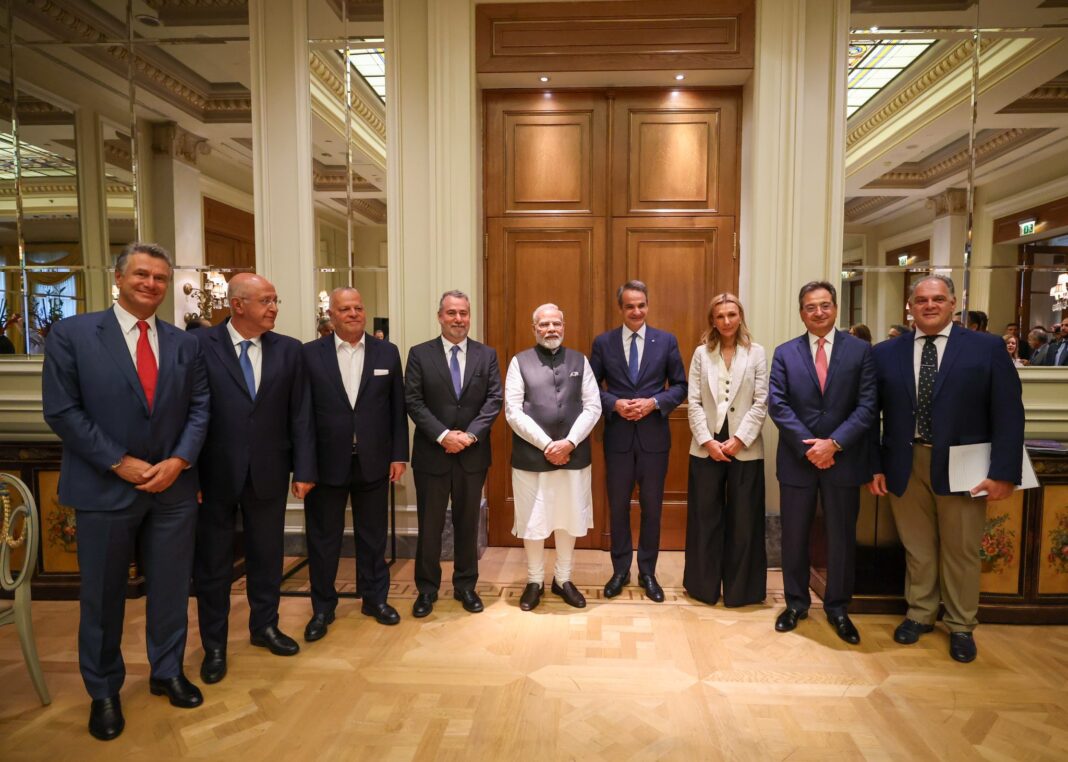Prime Minister Narendra Modi landed in the Greek capital, Athens, for a one-day visit, marking the first visit of an Indian Prime Minister to Greece in 40 years.
He was received at the airport by Greece’s Foreign Minister, George Gerapetritis.
PM Modi arrived in Greece after attending the 15th BRICS Summit in South Africa, during which he met various world leaders, including Chinese President Xi Jinping.
As part of the visit, PM Modi held discussions with Greece’s President, Katerina N Sakellaropoulou. He also met with his Greek counterpart Kyriakos Mitsotakis to discuss ways to further deepen bilateral relations.
This visit, coming after a gap of 40 years, is significant not only due to its extended time span but also because of the current geopolitical environment.
Against the backdrop of the Russia-Ukraine conflict and shifting geopolitical dynamics, India is actively diversifying its partnerships in the region.
India no longer relies solely on its traditional allies like Russia and Iran, instead, it is seeking new alliances with countries that share its interests, such as Greece and Armenia.
Relations between India and Greece have been steadily expanding in recent years. In 2020, the two countries signed a Strategic Partnership Agreement, resulting in increased cooperation in defence, trade and energy.
India is also enhancing its military relationship with Greece.
The Indian Air Force recently participated in a joint multinational air exercise called Iniochos 2023, held at the Hellenic Air Force’s Andravida airbase just three months ago (from 24 April to 4 May) raising concerns in Turkey.
Furthermore, India is also strengthening its relations with Armenia. India is providing weapons to Armenia to enhance its defensive posture against Azerbaijan.
This support includes anti-tank missiles, multiple launch rocket systems, artillery guns, weapons locating radars, and other arms and ammunition.
India’s efforts to strengthen its relationships with both Greece and Armenia are perceived as a direct challenge by the trilateral alliance of Azerbaijan and Pakistan, led by Turkey.
Furthermore, these moves also reflect India’s increasing strategic interests in the Mediterranean region, which holds significant importance for its energy security due to its abundant oil and gas resources.
Moreover, India is striving to enhance its trade and investment relations with this region.
In a recent interview with the WION on 24 August, the Greek Foreign Minister George Gerapetritis stated that Greece, with its Piraeus port in the Aegean Sea, has the potential to serve as India’s gateway to Europe.
Furthermore, India’s growing connections with Armenia and Greece serve as a countermeasure against China’s expanding influence in the Mediterranean region.
China has been actively strengthening its economic and military presence in the area, prompting India to actively balance China’s influence.
Greece has also shown support for India on the Kashmir issue and Pakistan-sponsored terrorism.
Additionally, Greece is interested in attracting Indian investments and could potentially assist in the Free Trade Agreement with the European Union.
swarajyamag.com

